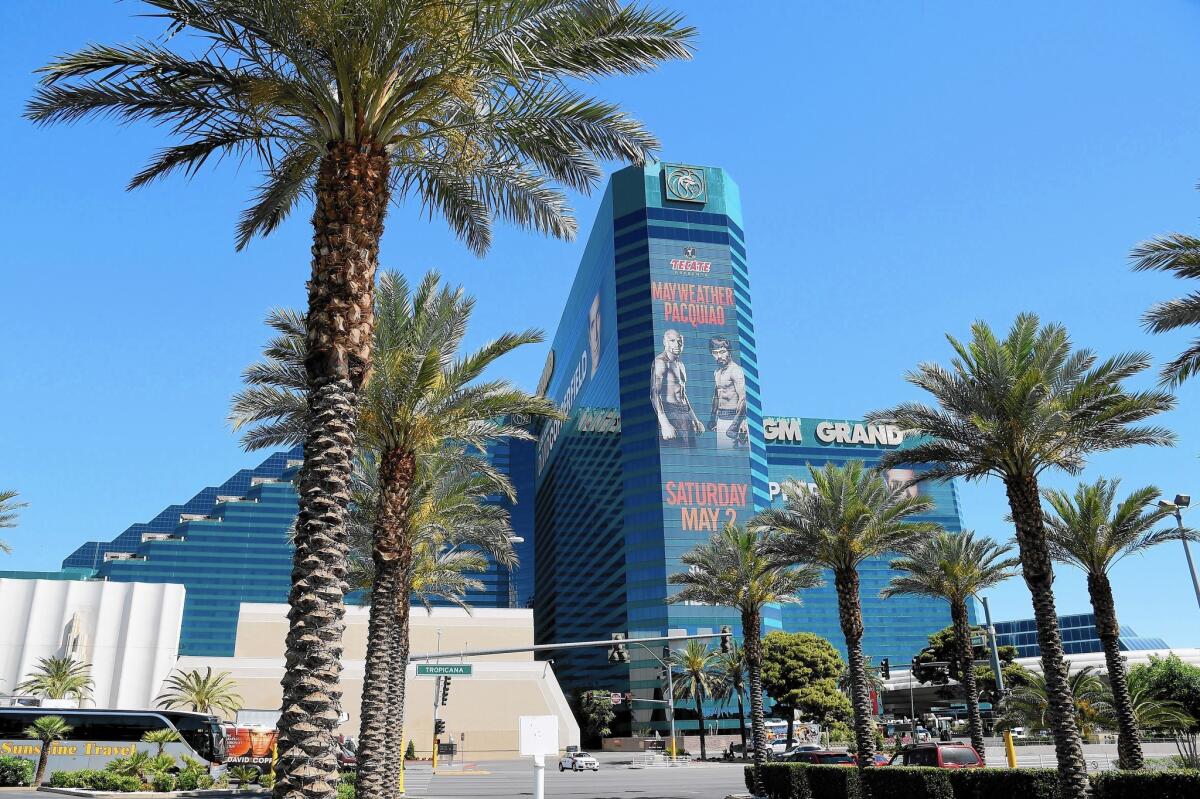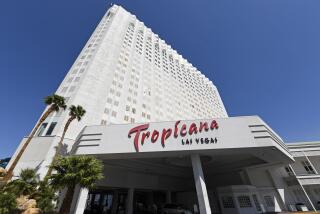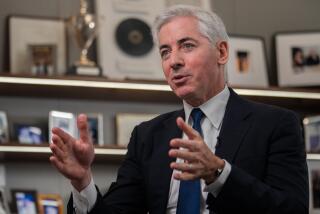Kirk Kerkorian: Notable chapters in the life of ‘a born gambler’

The MGM Grand Hotel & Casino in Las Vegas is owned by MGM Resorts International, in which Kirk Kerkorian’s Tracinda Corp. holds a 16.2% stake.
Kirk Kerkorian, who died Monday at 98, wasn’t just a fabulously rich corporate investor, he was an uncommon individual: intensely private, a billionaire with middle-class touches, a self-described “gambler at heart.”
He roiled the entertainment, auto and casino industries with his deals, often without a public utterance. From his unassuming Beverly Hills office, he traveled the globe in luxury but drove middle-class cars around town. And Kerkorian bristled at the idea of having a building named after him.
Here are some notable chapters in Kerkorian’s life:
The odd couple
When the very private Kerkorian made his audacious takeover bid for Chrysler Corp. in 1995, he teamed with a polar-opposite personality: Chrysler Chairman Lee Iacocca.
Iacocca had become one of America’s household names by starring in the automaker’s television commercials, where he challenged consumers with the catchphrase “If you can find a better car, buy it.”
Chrysler rebuffed the takeover bid. But Kerkorian, through his Tracinda Corp., ultimately made $2.7 billion on his investment.
Tracinda, incidentally, was named after Kerkorian’s daughters Tracy and Linda.
Las Vegas kingpins
Like Iacocca, Mirage Resorts’ flamboyant chairman, Steve Wynn, became a familiar face to Americans by appearing in his casino company’s TV ads.
By 2000, Wynn also was arguably one of the two most important figures on the Las Vegas Strip owing to his company’s stable of hotel-casinos, including the Mirage and the Bellagio.
The other figure was Kerkorian, who controlled MGM Grand. And in 2000, Kerkorian effectively took out his Las Vegas rival with a $4.4-billion buyout deal for Mirage Resorts.
Kerkorian later would buy the Mandalay Resort Group as well. Today MGM Resorts International owns or has partial ownership of about 40,000 rooms in Las Vegas.
MGM Resorts told federal regulators Tuesday that Kerkorian’s will requires Tracinda to sell its 16.2% stake in the hotel company. That investment is worth about $1.74 billion.
Kerkorian’s drive
Observers often were confused about Kerkorian’s motives when he made certain investments.
When he started buying Chrysler’s stock in 1990, for instance, even some of his bankers were taken aback because of the automaker’s woes at the time.
But Iacocca once offered a concise explanation for Kerkorian’s style: “Doing deals is what keeps him alive,” Iacocca told The Times in 2005. “He’s a born gambler with a sixth sense for sniffing out value.”
That same year Kerkorian confounded Detroit by amassing a 9.9% stake in General Motors Corp., an investment that this time yielded a more modest profit of about $100 million.
Kerkorian’s reticence
The son of Armenian immigrants who settled in the San Joaquin Valley, Kerkorian enjoyed some trappings of his immense wealth, such as sailing on his yacht or flying in his private Boeing 737 jet.
Yet he remained shy, reserved and usually anonymous in public. He would stroll through his Las Vegas casinos and not be recognized by the staff, which was the way he liked it.
A Times profile of Kerkorian in 2005 suggested that one of the reasons he was so publicity shy was that he was an eighth-grade dropout from a school for delinquent boys in downtown Los Angeles, and he believed that his conversation reflected it.
“I wish I could talk like Donald Trump or Steve Wynn,” Kerkorian said in a rare interview with The Times. “Hell, I’d love it.”
Studio mogul
Kerkorian’s dislike of the public spotlight extended to his role as a movie studio mogul.
When one of his Metro-Goldwyn-Mayer Inc. films was released, Kerkorian paid to watch it at a Los Angeles theater where he preferred to stand in line with the audience.
Kerkorian bought and sold the MGM studio three times; the final sale was to a group led by Sony Corp. for nearly $5 billion in 2004, which netted Kerkorian roughly $900 million.
His critics contended that Kerkorian dismantled and nearly sank the legendary studio in the 1980s, criticism that Kerkorian steadfastly refuted.







